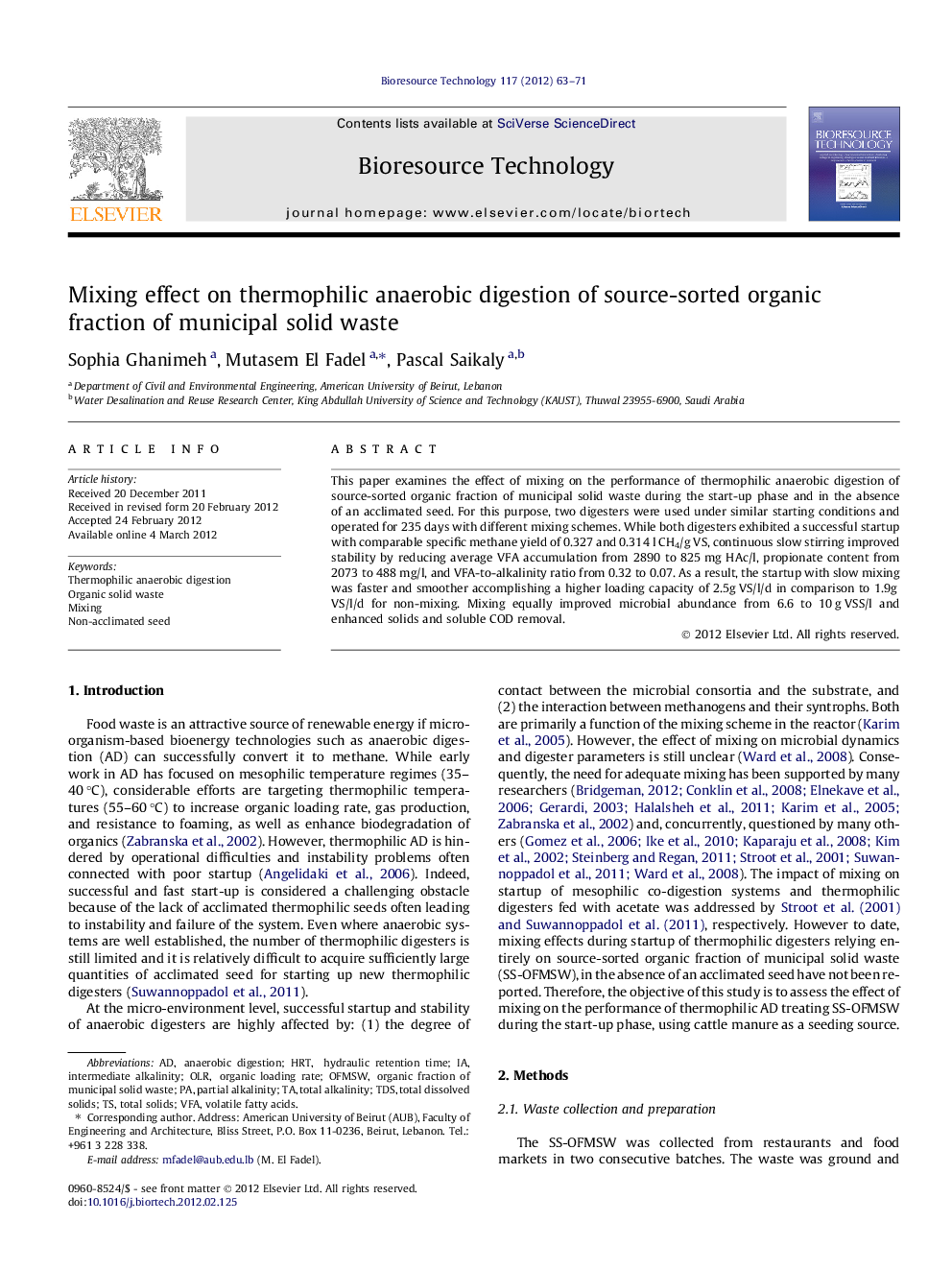| Article ID | Journal | Published Year | Pages | File Type |
|---|---|---|---|---|
| 681497 | Bioresource Technology | 2012 | 9 Pages |
This paper examines the effect of mixing on the performance of thermophilic anaerobic digestion of source-sorted organic fraction of municipal solid waste during the start-up phase and in the absence of an acclimated seed. For this purpose, two digesters were used under similar starting conditions and operated for 235 days with different mixing schemes. While both digesters exhibited a successful startup with comparable specific methane yield of 0.327 and 0.314 l CH4/g VS, continuous slow stirring improved stability by reducing average VFA accumulation from 2890 to 825 mg HAc/l, propionate content from 2073 to 488 mg/l, and VFA-to-alkalinity ratio from 0.32 to 0.07. As a result, the startup with slow mixing was faster and smoother accomplishing a higher loading capacity of 2.5g VS/l/d in comparison to 1.9g VS/l/d for non-mixing. Mixing equally improved microbial abundance from 6.6 to 10 g VSS/l and enhanced solids and soluble COD removal.
► Impact of slow mixing on startup of thermophilic anaerobic digesters. ► Digesters inoculated with non-acclimated seed (manure) and fed with food waste. ► Slow mixing enhanced the start-up process. ► Slow mixing improved loading rate, stability, and treatment efficiency. ► Slow mixing reduced the accumulation of volatile fatty acid.
